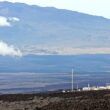Margaret E. Kosal, assistant professor, Sam Nunn School of International Affairs, Georgia Institute of Technology
August 22, 2013
Chemical weapons are not an artifact of history. If no other lesson is to be taken from the allegations of use of chemical weapons in Syria, that one should be. Too often over the last decade, the national security community has perpetuated the treatment of chemical weapons—whether state-based or terrorist use—as a lesser danger than the threat from biological or nuclear agents. And sometimes, the chemical threat is practically dismissed outright, as has happened across too much of the United States government. For example, the Commission on the Prevention of Weapons of Mass Destruction Proliferation and Terrorism, a bipartisan US congressional endeavor, did not even consider chemical weapons in its final report in 2008; that report focused solely on nuclear and biological weaponry. Perhaps the greatest irony is that the commission’s report predicted that “unless the world community acts decisively and with great urgency, it is more likely than not that a weapon of mass destruction will be used in a terrorist attack somewhere in the world by the end of 2013.” Well, it seems their prediction was correct in its timing. But the attack doesn’t appear to have been made by terrorists. And the agent used wasn’t biological or nuclear.
Another lesson to be drawn from the experience in Syria is the need for better remote verification methodologies. If the international community, some allied coalition, or the United States is to respond to chemical weapons use, more accurate and precise technologies and means of verification are needed. That means investing not only in technology for chemical weapons detection from a distance, but also—and especially— in basic research in that area. Better verification data is needed to enable more robust political and foreign policy choices. Better and faster detection capabilities will also benefit nonproliferation and deterrence by increasing the likelihood that chemical weapons use will be discovered.
Margaret E. Kosal
assistant professor
Sam Nunn School of International Affairs, Georgia Institute of Technology













